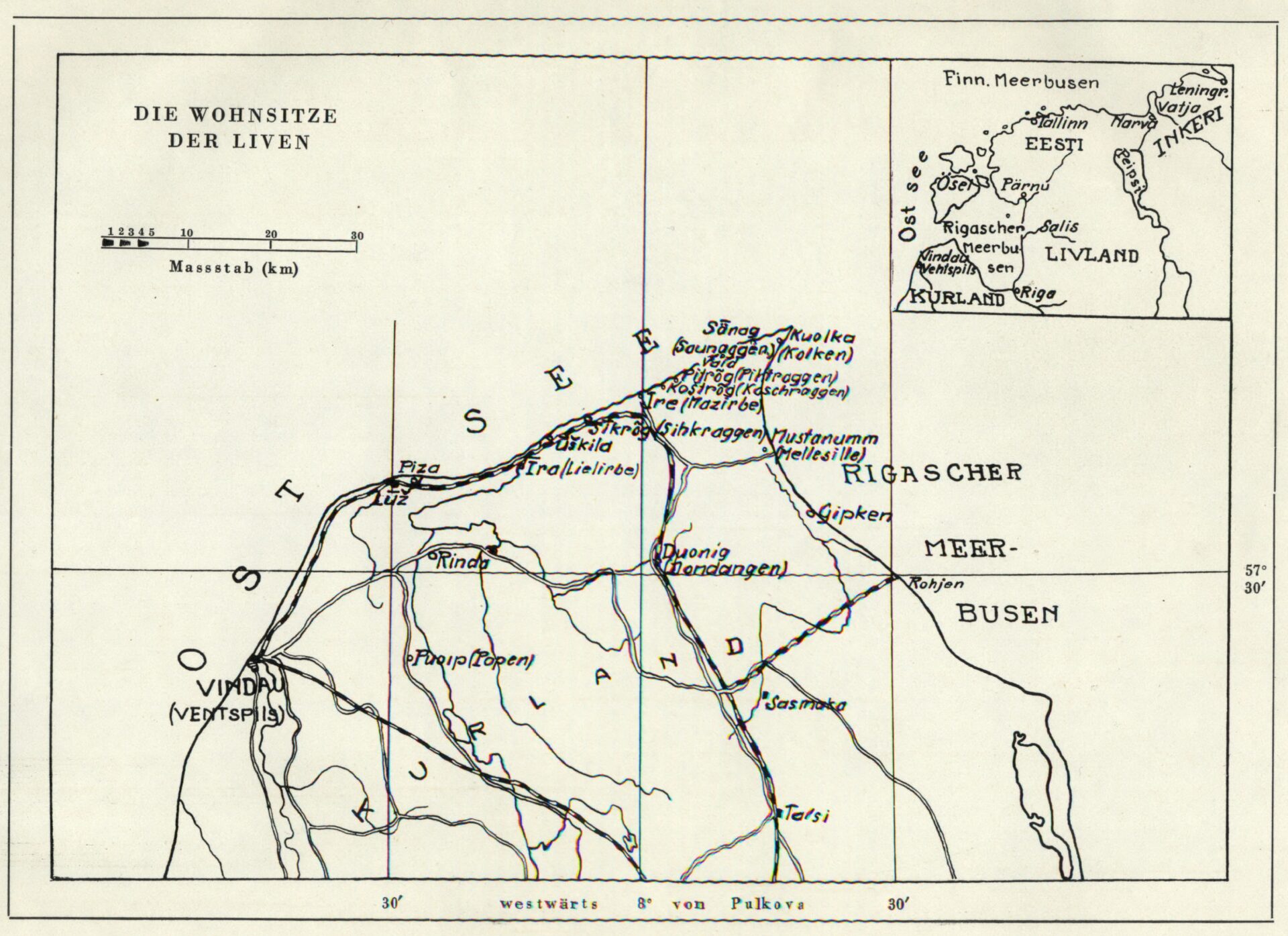
Livonian
6.2. Gramatik / Grammar
Conditional mood
Konditsionaali ehk tingivat kõneviisi kasutatakse ennekõike sündmuse või seisundi irreaalsuse väljendamiseks. Üldjuhul seostub sellega võimalikkuse tähendus, st esinemise tõenäosus mingis kujuteldavas situatsioonis. Tingival kõneviisil on nii oleviku kui ka mineviku aeg.
Present tense conditional
The present tense conditional is formed with the ending –ks or –õks. Here are a few examples of verbs conjugated in the affirmative:
| vȱl|da ’to be’ (Group 1) | sǭ|dõ ’to get’ (Group 2) | je’ll|õ ’to live’ (Group 3) | lu’gg|õ ’to read’ (Group 3) | mõtl|õ ’to think’ (Group 4) | |
|---|---|---|---|---|---|
| ma | vȯl|ks | sǭ|ks | jelā|ks | lu’gg|õks | mõtl|õks |
| sa | vȯl|ks|t | sǭ|ks|t | jelā|ks|t | lu’gg|õks|t | mõtl|õks|t |
| ta | vȯl|ks | sǭ|ks | jelā|ks | lu’gg|õks | mõtl|õks |
| mēg | vȯl|ks|mõ | sǭ|ks|mõ | jelā|ks|mõ | lu’gg|õks|mõ | mõtl|õks|mõ |
| tēg | vȯl|ks|tõ | sǭ|ks|tõ | jelā|ks|tõ | lu’gg|õks|tõ | mõtl|õks|tõ |
| ne | vȯl|ks|tõ | sǭ|ks|tõ | jelā|ks|tõ | lu’gg|õks|tõ | mõtl|õks|tõ |
Note! ū- and õ-stem verbs (nt lu’ggõ) belonging to Group 3 attach the conditional ending to the strong grade form (see also Section 2.4).
In negative singular forms, only the conditional ending is attached to the stem, while in plural forms a personal ending is also added (just like in the affirmative). Negative forms of the verbs je’llõ ‘to live’ and lu’ggõ ‘to read’ are given below:
| ma | ä’b jelā|ks | ä’b lu’gg|õks |
| sa | ä’d jelā|ks | ä’d lu’gg|õks |
| ta | ä’b jelā|ks | ä’b lu’gg|õks |
| mēg | ä’b jelā|ks|mõ | ä’b lu’gg|õks|mõ |
| tēg | ät jelā|ks|tõ | ät lu’gg|õks|tõ |
| ne | ä’b jelā|ks|tõ | ä’b lu’gg|õks|tõ |
Present tense forms describe events, which have not yet occurred at the time of observation, but may occur in the future, e.g.,
Vȯlks ni mi’nnõn rǭz vȭita, ma tīeks vȭidagstleibõ, bet leibõ ä’b ūo ’If I had a bit of butter, I would make a sandwich, but I don’t have any bread’
Past tense conditional
The past tense conditional is formed using the conditional form of the verb vȱlda + the participle form of the main verb. The affirmative and negative past tense forms of the verb mängõ ’mängida’ are given below (see Unit 8 about participles):
| ma | vȯl|ks | ä’b vȯl|ks | mängõn |
| sa | vȯl|ks|t | ä’d vȯl|ks | |
| ta | vȯl|ks | ä’b vȯl|ks | |
| mēg | vȯl|ks|mõ | ä’b vȯl|ks|mõ | mängõnd |
| tēg | vȯl|ks|tõ | ät vȯl|ks|tõ | |
| ne | vȯl|ks|tõ | ä’b vȯl|ks|tõ |
Past tense forms describe events, which did not happen for some reason, but could have happened, e.g.,
Ku sa ka vȯlkst skūolsõ kǟ’nd ja oppõn, si’z ka si’nnõn vȯlks ne’i ī’ž jõvā jelāmi ’If you had gone to school and studied, then you also would have just as good of a life’
Negative forms, however, imply the opposite, i.e., an event took place, even though it could have also not happened, e.g.,Lu’ggõ kil ta u’m mȯistõn, mõitiz päp tä’mmõn ä’b vȯlks andõn 1858. [tū’ontõ kǭ’dõkssa’ddõ vīžkimdõ kǭ’dõksmõs] āigasts bībõl ’He certainly knows how to read, otherwise the pastor would not have given him the 1858 Bible’.


